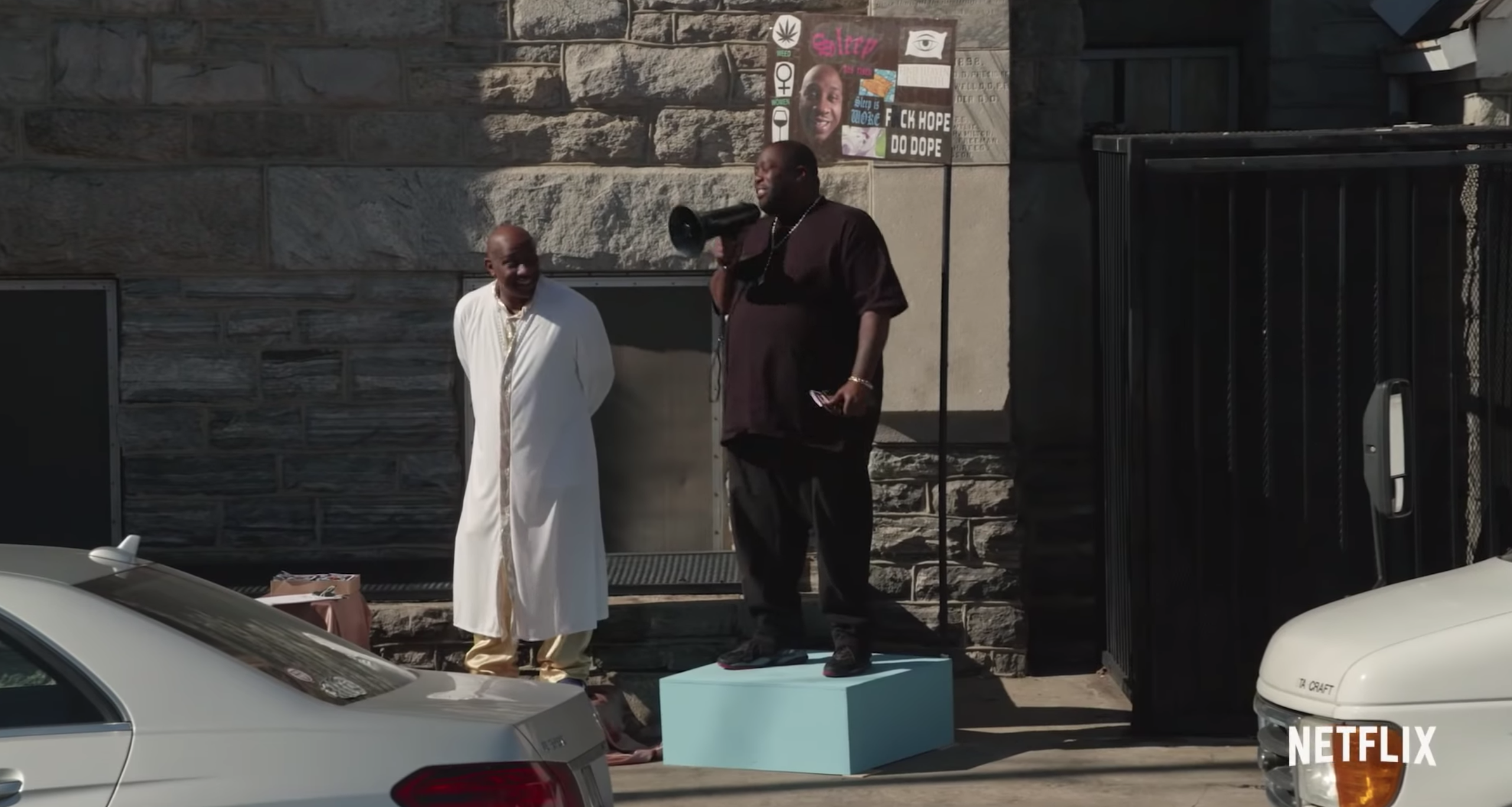In a standout scene from the first episode of his new Netflix series, Atlanta rapper Killer Mike tells an Asian stripper who has approached him for a dance at the Blue Flame Lounge — a lesser-known establishment than Magic City, but a staple for Atlanta locals — that she must move on to another client. Accepting her dance would break his pact: to only circulate his money within the black community for three days.
Though controversial, this kind of pro-blackness has guided and cemented Killer Mike’s career as a rapper/activist/business owner, which he makes clear when introducing himself in the first minute or so. Perhaps the simplest way (very high emphasis on “simplest”) to describe Trigger Warning with Killer Mike is a series of — shall we say, unique — social experiments mostly dedicated to bettering the black population.
But as you watch, you realize he is very serious about his goals to revolutionize the way we look at society. He encouraged Crips and Bloods — or “street fraternities” — to capitalize on their organization by creating and branding their own sodas, started his own religion dubbed “The Church of Sleep” and convinced the president of a technical school to add his educational pornography to its curriculum. He is not merely running controlled tests to make a point.
Some of Killer Mike’s proposals may sound bizarre at first, and some of his tactics are questionable. At one point, he tells a group of first graders that they won’t turn out to be the president, a scientist or, as they call it, a “pebeatrician.” Instead, he tries to shift their focus to learning a vocation.
“I would argue that the school system is failing not because it’s teaching future generations poorly, it’s simply not teaching the right things,” he says in the second episode, “F**k School.” “It’s not about what you know, but what you can build.”
Obviously, that’s his opinion. And, coming from him, some would take it with a grain of salt. Last year, he was widely criticized for sitting down with the National Rifle Association to make his case for why black people in America should be armed. While the move may have been misguided — cancel culture aside — his call for equal enforcement of the Second Amendment is a call for civil rights, a mission that translates on his show.
The issues he’s tackling are in no way unfamiliar. We know they exist, but he continues to find interesting ways to expose a lot of people’s unwillingness to address and discomfort with disparity. At the end of the three days, while on stage in Athens, Georgia, he gives a history lesson on the black businesses that thrived there and beckons for unity.
“So make sure that you support a business, you communicate with people who don’t look like you, you grow new friendships and we end that racist bullshit the slow and loving way,” he says before starting a countdown to the end of his 36 hours only spending money within the black community and to finally being able to enjoy a previously forbidden joint (his weed guy’s growers are white).



